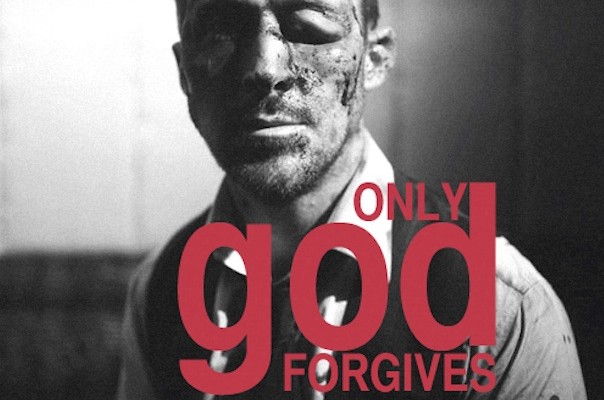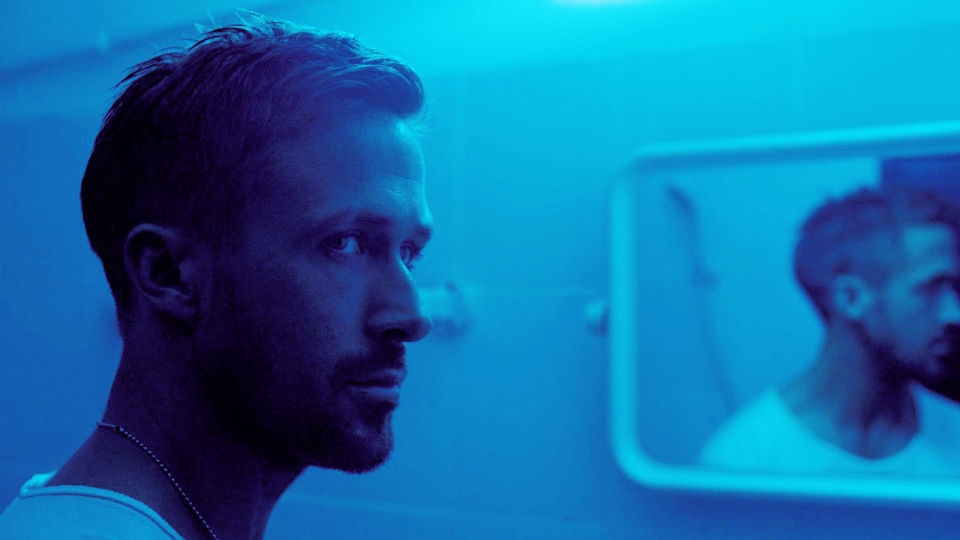As an exercise in challenging the conscience and human soul, Nicolas Winding Refn’s newest outing, “Only God Forgives”, succeeds dramatically. Regarding plot and character development, though, it’s slow-building. In fact, it hardly builds at all. The characters in the film remain the same through just about the entire time. There’s no rise and fall in their arcs, just violence and mayhem. The difference between this film and others like it, though, is that it fills, and eventually overflows, with irrationality, causing a strange overwhelming sense within the viewer.
The critical reception of “Only God Forgives” reminds me of the reception Sam Peckinpah’s film, “Straw Dogs”, recieved in 1971 upon its own releasing. Peckinpah’s film affects the viewer the same way as Refn’s does. Both films feature heavy touches of violence, questioning whether or not any of it is right. They’re both social commentaries, reflecting upon contemporary society’s fascination with blood, and they both stir doubt within the viewer’s own morality – as does many of Refn’s other films. His 2008 film, “Bronson”, starring a prodigious Tom Hardy, looks at how society tries to contain violence. “Valhalla Rising” displays violence almost as a transcendental meditation. “Drive” portrays how violence can be a redemptive quality in a hero. “The Pusher Trilogy” uses violence as an object, where it’s simply there, and always will be. It seems that every film Refn makes is an intense investigation on violence, showing how society reacts to its power.
This particular film’s story centers on Julian, played by Ryan Gosling, who has less dialogue than he did in “Drive”. Julian’s brother, Billy, is murdered for raping and killing a young girl (one of the only bad things in the film that we get the pleasure of not seeing). Julian’s manipulative mother, played by a hissingly evil Kristin Scott Thomas, persuades him to find and kill the people involved in Billy’s murder. Gosling commands every scene he’s in, as always, however it’s Vithaya Pansringam, a virtually unknown Thai actor, who steals the show away from everyone else. Through the blurry Lynchian narrative, Pansringam shines bright as a sadistic policeman involved in this tit-for-tat murder game, and conjures up a performance worthy of at least an Oscar nomination.
The visuals of Refn are the most fascinating part of the film. Refn is a man who can stir up and display so much violence on screen that when it’s juxtaposed with his artistic palette, it becomes even more jarring. The film’s bleak morals may exasperate you, but it will still remain a great film, not in spite of the viewer’s reaction, but because of it. The film challenges its viewer on many levels, perhaps being the reason why its been negatively and unfairly bombarded by critics, and audiences alike. I’m beginning to think that “Only God Forgives” is probably going to end up being the most misunderstood film of the developing decade.
I understand why people wouldn’t enjoy a thought-provoking film like “Only God Forgives”. People want explanations. Audiences today want answers wrapped up in little bows and given to them on a platter. Let me ask this, though – do any of the movie’s out there that are considered the “greatest” ever serve their answers easily? A prime example would be Andrei Tarkovsky’s astounding 1979 film, “Stalker”. Throughout the entire film, though beautiful, it’s hard to figure out just why things are happening the way they are. The film causes you to think outside the box – to create your own explanation. “Only God Forgives” doesn’t do this as vividly as “Stalker” does, but it still begs for questions to be asked afterwards – that’s what seperates it from every other film released this summer. That’s what makes “Only God Forgives” so good.
Rating: 9/10
Author Bio: Tyler Harris is a film critic and analyst from Louisville, Kentucky. His passionate love for cinema and television keeps him in tune with his writing.

